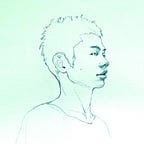Other Minds: The Octopus and the Evolution of Intelligent Life | Peter Godfrey-Smith
It is not a science book. Above all, the author is not a scientist — he is a philosopher and a diver. The book is a nice essay about the author’s thoughts on evolution, cognitive science and philosophy, which develop around an interesting creature — the octopus.
The nervous system is a product of evolution. Before then, cells need to signal each other to do something together. By introducing nerves, organisms can orchestrate all the cells for a single purpose much faster. The author says that the nervous system is an internalization of sensing-signaling between the cells (and by the same analogy, the author claims that consciousness is an internalization of language). Octopuses have quite interesting nervous systems, and the author deep dive into the topic in this book.
Before reading this book, I’ve never known interesting features of octopuses, such as:
- They have quite large nervous systems. The size is similar to mammals and much bigger than the peers. The brain per body mass is bigger than most invertebrates, though it is smaller than most mammals.
- Unlike mammals and the other vertebrates, whose nervous system concentrates on the brain, the octopuses’ nervous systems have nine centers — the brain and the eight tentacles. Octopuses don’t have a centralized information-processing machine. Instead, they have a more distributed system. By the way, octopuses have three hearts.
- Octopuses are smart and curious. They can navigate simple mazes and unscrew jars to fetch food. Whenever they encounter something new, octopuses play around them often. Furthermore, unlike fishes, octopuses are aware that they are in a tank when taken to an aquarium.
- Many octopuses have various pigments inside their skins and thus mimick most of the background if they want. Although they have various colors in their body, they are blind.
- Despite all these complex functionalities, octopuses have relatively short lives. It lives only 1–5 years.
The author is unclear about the conclusion to his questions around octopuses, such as “since what point of the nervous system development do animals come to have a mind”. So if you expect any clear conclusion from this book, you might feel irritated.
We should read this book as an essay to promote respect for lives. When you read the book, you feel how the author is in awe when he observes and thinks about octopuses in his diving spot. My perspective on octopuses (until before, I knew them as food only) changed considerably, and I revere the complexity and wonders of ocean lives much more than before. If that is the hidden major agenda of Godfrey-Smith, he did make a big success.
